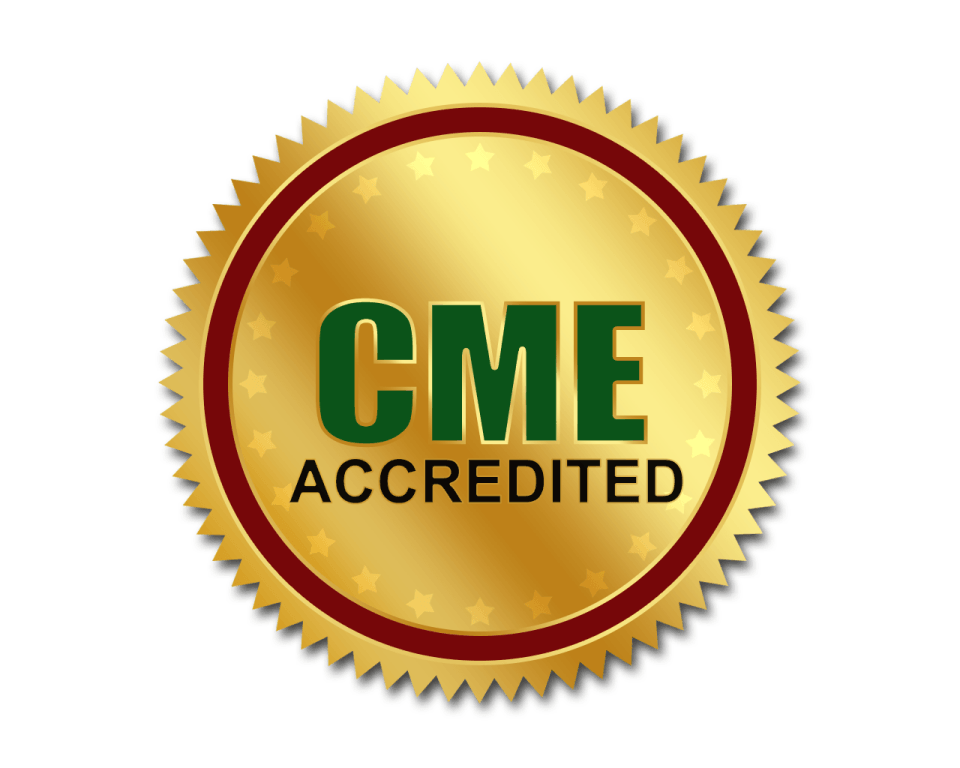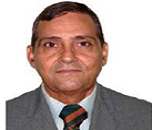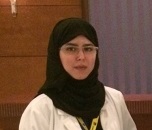Theme: Updates on Clinical Gastroenterology and Hepatology
Clinical Gastroenterology 2016
Track 1: Advances in Gastrointestinal Diseases
Short bowel syndrome (SBS)-associated intestinal failure is a highly disabling condition that impairs quality of life and social integration will be discussed in Gastroenterology conferences. Although the condition is not uniformly fatal, it might lead to serious, life-threatening complications. The basic goals of medical treatment are reflux to maintain electrolyte, fluid, and nutrient balances and to make modifications in disease management in order to avoid side effects. Various definitions have been proposed for SBS and intestinal failure within the medical literature, but many focus on different aspects of the conditions, leading to confusion. In the past, identifying the cause of intestinal failure was of little consequence, because all patients were managed on total parenteral nutrition at home. However, with the recent development of medical therapies such as recombinant growth hormone, octreotide, and glucagon-like peptide-2 analogues and with improvements in small bowel transplantation, many patients can be made nutritionally autonomous. To evaluate the relative efficacy of these therapies, patients can be properly categorized before therapy there is now a need to develop consensus definitions. Teduglutide, a glucagon-like peptide 2 analogue, might restore intestinal structural and functional integrity by promoting growth of the mucosa and reducing gastric emptying and secretion. These factors could increase fluid and nutrient absorption in patients with short bowel syndrome with intestinal failure (SBS-IF). Gastrointestinal disorders encompass Crohn’s disease and ulcerative colitis, celiac disease, diverticulitis, irritable bowel syndrome, constipation, diarrhea, gastritis and gastroesophageal reflux, food allergies, parasites, dysbiosis, and a number of less common entities. Patients may present with abdominal pain, cramps, gas, bloating, food intolerances, or changes in bowel habits. There are often additional symptoms such as fatigue, muscle and joint pains, headaches, memory and other cognitive problems, depression, insomnia and reduced libido.
Related Clinical Gastro Conferences | Gastroenterology Conferences | ConferenceSeries Ltd: 3rd World Congress on Hepatitis and Liver Diseases Conference, October 17-19, 2016, UAE; 5th World Congress on Virology Conference, December 07-09, 2015, USA; 2nd International Conference on Hepatology Conference, May 09-11, 2016, USA; 5th International Conference and Exhibition on Pathology Conference, May 09-11, 2016, USA; World Pathology Congress, June 16-18, 2016, Spain; 31st Annual New Treatments in Chronic Liver Disease, March 19-20, 2016, La Jolla, USA; (AHPBA) 2017 Annual Meeting, March 29-April 2, 2017, Miami, Florida; Mayo Clinic Gastroenterology and Hepatology, February 25-28, 2016, Arizona, USA; 2016 Gastrointestinal Cancer Symposium, January 21-23, 2016, San Francisco, USA, American Gastroenterological Association, American Society for Gastrointestinal Endoscopy (ASGE), North American Society for Pediatric Gastroenterology, European gastroenterology society, British society of gastroenterology guidelines
Track 2: Gastrointestinal Oncology
Surgeons are continuing to improve their techniques for operating on colorectal cancers. They now have a better understanding of what makes colorectal surgery more likely to be successful, such as making sure enough lymph nodes are removed during the operation. Laparoscopic surgery is done through several small incisions in the abdomen instead of one large one, and it's becoming more widely used for some colon cancers. This approach usually allows patients to recover faster, with less pain after the operation. Gastroenterology conferences have Laparoscopic surgery is also being studied for treating some rectal cancers, but more research is needed to see if it as effective as standard surgery. With robotic surgery, a surgeon sits at a control panel and operates very precise robotic arms to perform the surgery. This type of surgery is also being studied.
Related Clinical Gastro Conferences | Gastroenterology Conferences | ConferenceSeries Ltd: 3rd World Congress on Hepatitis and Liver Diseases Conference, October 17-19, 2016, UAE; 5th World Congress on Virology Conference, December 07-09, 2015, USA; 2nd International Conference on Hepatology Conference, May 09-11, 2016, USA; 5th International Conference and Exhibition on Pathology Conference, May 09-11, 2016, USA; World Pathology Congress, June 16-18, 2016, Spain; 31st Annual New Treatments in Chronic Liver Disease, March 19-20, 2016, La Jolla, USA; (AHPBA) 2017 Annual Meeting, March 29-April 2, 2017, Miami, Florida; Mayo Clinic Gastroenterology and Hepatology, February 25-28, 2016, Arizona, USA; 2016 Gastrointestinal Cancer Symposium, January 21-23, 2016, San Francisco, USA, American Gastroenterological Association, American Society for Gastrointestinal Endoscopy (ASGE), Massachusetts Institute of Technology Ohms society of Gastroenterology for Sopranos, World Gastroenterology Organisation, British Society of Gastroenterology
Track 3: Gastrointestinal Surgery
Capsule Endoscopy lets your doctor examine the lining of the middle part of your gastrointestinal tract, which includes the three portions of the small intestine (duodenum, jejunum, ileum). Your doctor will give you a pill sized video camera for you to swallow. This camera has its own light source and takes pictures of your small intestine as it passes through. These pictures are sent to a small recording device you have to wear on your body. Capsule endoscopy helps your doctor evaluate the small intestine. This part of the bowel cannot be reached by traditional upper endoscopy or by colonoscopy. The most common reason for doing capsule endoscopy is to search for a cause of bleeding from the small intestine. It may also be useful for detecting polyps, inflammatory bowel disease (Crohn’s disease), ulcers, and tumors of the small intestine.
As is the case with most new diagnostic procedures, not all insurance companies are currently reimbursing for this procedure. You may need to check with your own insurance company to ensure that this is a covered benefit. An empty stomach allows for the best and safest examination, so you should have nothing to eat or drink, including water, for approximately twelve hours before the examination. Your doctor will tell you when to start fasting. Most patients consider the test comfortable. The capsule endoscope is about the size of a large pill. After ingesting the capsule and until it is excreted you should not be near an MRI device or schedule an MRI examination. Capsule endoscopy allows for examination of the small intestine, which cannot be easily reached by traditional methods of endoscopy.
Related Clinical Gastro Conferences | Gastroenterology Conferences | ConferenceSeries Ltd: 3rd World Congress on Hepatitis and Liver Diseases Conference, October 17-19, 2016, UAE; 5th World Congress on Virology Conference, December 07-09, 2015, USA; 2nd International Conference on Hepatology Conference, May 09-11, 2016, USA; 5th International Conference and Exhibition on Pathology Conference, May 09-11, 2016, USA; World Pathology Congress, June 16-18, 2016, Spain; 31st Annual New Treatments in Chronic Liver Disease, March 19-20, 2016, La Jolla, USA; (AHPBA) 2017 Annual Meeting, March 29-April 2, 2017, Miami, Florida; Mayo Clinic Gastroenterology and Hepatology, February 25-28, 2016, Arizona, USA; 2016 Gastrointestinal Cancer Symposium, January 21-23, 2016, San Francisco, USA, American Gastroenterological Association, American Society for Gastrointestinal Endoscopy (ASGE), North American Society for Pediatric Gastroenterology, European gastroenterology society, British society of gastroenterology guidelines
Track 4: Advances in Liver Diseases
You can get alcoholic liver disease from drinking lots of alcohol. It can even show up after a short period of heavy drinking. Genes that are passed down from your parents may also play a role in ALD. They can affect the chances that you become an alcoholic. And they can also have an impact on the way your body breaks down the alcohol you drink. Other things that may affect your chance of getting ALD are:- Hepatitis C (which can lead to inflammation in your liver) Too much iron in your body and Being obese. Gastroenterology conferences this infection of the liver is caused by the hepatitis C virus. About 3.2 million people in the U.S. have the disease. But it causes few symptoms, so most of them don't know. There are many forms of the hepatitis C virus. The most common in the U.S. is type 1. None is more serious than any other, but they respond differently to treatment. The virus spreads through the blood or body fluids of an infected person. You can catch it from: Sharing drugs and needles Having sex, especially if you have an STD, an HIV infection, several partners, or have rough sex, Being stuck by infected needles, Birth -- a mother can pass it to a child. About 75% to 85% of people who have it develop a long-term infection called chronic hepatitis C. It can lead to conditions like liver cancer and cirrhosis, or scarring of the liver. This is one of the top reasons people get liver transplants. Hepatitis C treatments have changed a lot in recent years. The latest is a once-daily pill called Harvoni that cures the disease in most people in 8-12 weeks. It combines two drugs: sofosbuvir (Sovaldi) and ledipasvir. In clinical trials, the most common side effects were fatigue and headache. However, the medicine is expensive. The incidence of primary liver cancer is increasing in several developed countries and the increase will likely continue for some decades. This is due to infection with hepatitis B and hepatitis C viruses, which peaked in the 1950s to 1980s. In some developing countries, the incidence of primary liver cancer has decreased, possibly as a result of the introduction of hepatitis B vaccine. The geographic variability in incidence of primary liver cancer is largely due to the distribution and the natural history of the hepatitis B and C viruses.
Related Clinical Gastro Conferences | Gastroenterology Conferences | ConferenceSeries Ltd: 3rd World Congress on Hepatitis and Liver Diseases Conference, October 17-19, 2016, UAE; 5th World Congress on Virology Conference, December 07-09, 2015, USA; 2nd International Conference on Hepatology Conference, May 09-11, 2016, USA; 5th International Conference and Exhibition on Pathology Conference, May 09-11, 2016, USA; World Pathology Congress, June 16-18, 2016, Spain; 31st Annual New Treatments in Chronic Liver Disease, March 19-20, 2016, La Jolla, USA; (AHPBA) 2017 Annual Meeting, March 29-April 2, 2017, Miami, Florida; Mayo Clinic Gastroenterology and Hepatology, February 25-28, 2016, Arizona, USA; 2016 Gastrointestinal Cancer Symposium, January 21-23, 2016, San Francisco, USA, American Gastroenterological Association, American Society for Gastrointestinal Endoscopy (ASGE), Massachusetts Institute of Technology Ohms society of Gastroenterology for Sopranos, World Gastroenterology Organisation , British Society of Gastroenterology
Track 5: Gastrointestinal Immunology
The gastrointestinal tract (GI tract) plays dual roles in human physiology: digestion and uptake of nutrients and the more daunting task of maintaining immune homeostasis (protecting the body from potentially harmful microbes, while inducing tolerogenic responses to innocuous food, commensals and self-antigens). The unique architecture of the GI tract and Viral hepatitis facilitates both of these functions; multiple levels of infolding results in an immense overall surface area that allows maximal nutrient absorption while housing the largest number of immune cells in the body. As many pathogens enter the body via the intestinal mucosa, it is vital the gut-associated lymphoid tissues can provide effective immune responses when necessary. However, inappropriate responses against innocuous food and commensal antigens lead to inflammatory disorders such as coeliac disease and inflammatory bowel disease (IBD) and Intestinal Surgery.
Related Clinical Gastro Conferences | Gastroenterology Conferences | ConferenceSeries Ltd: 3rd World Congress on Hepatitis and Liver Diseases Conference, October 17-19, 2016, UAE; 5th World Congress on Virology Conference, December 07-09, 2015, USA; 2nd International Conference on Hepatology Conference, May 09-11, 2016, USA; 5th International Conference and Exhibition on Pathology Conference, May 09-11, 2016, USA; World Pathology Congress, June 16-18, 2016, Spain; 31st Annual New Treatments in Chronic Liver Disease, March 19-20, 2016, La Jolla, USA; (AHPBA) 2017 Annual Meeting, March 29-April 2, 2017, Miami, Florida; Mayo Clinic Gastroenterology and Hepatology, February 25-28, 2016, Arizona, USA; 2016 Gastrointestinal Cancer Symposium, January 21-23, 2016, San Francisco, USA, American Gastroenterological Association, American Society for Gastrointestinal Endoscopy (ASGE), North American Society for Pediatric Gastroenterology, European gastroenterology society, British society of gastroenterology guidelines
.
Track 6: Clinical Nutrition in Gastrointestinal Disease
Nutrition is important in the management of gastrointestinal disease because the job of the intestinal track is to digest and absorb nutrients. The therapeutic approach to most gastrointestinal problems involves a combination of medication and nutritional therapy. Gastrointestinal disease can be broadly characterized as acute and chronic. Acute gastrointestinal conditions are most commonly caused by dietary indiscretion or the exacerbation of chronic gastrointestinal disease. Chronic gastrointestinal disease is frequently associated with a diagnosis of inflammatory bowel disease, an adverse food reaction or colitis. The nutritional approach to managing acute versus chronic gastrointestinal conditions is different which will be seen in Program of Gastro. Irritable bowel syndrome (IBS) is one of the most common and troublesome conditions for which individuals seek medical attention. Specific food practices may contribute to symptoms of constipation, diarrhea, bloating, gas, and abdominal pain will be seen in International Gastroenterology Conferences 2015. Adding fiber to your diet may help improve bowel function and decrease symptom severity. Microecology of the gastrointestinal tract is the physiologic basis for the effect of dietary fiber, prebiotics and probiotics on the host. The ecology consists of the gastrointestinal tract, primarily the intestines, the foods that are fed into the tract, and the flora living within. Within this ecology, normal flora and probiotics, ferment dietary fiber and prebiotics to produce short chain fatty acids and substances that are absorbed and effect the host at the intestinal level and systemically.
Related Clinical Gastro Conferences | Gastroenterology Conferences | ConferenceSeries Ltd: 3rd World Congress on Hepatitis and Liver Diseases Conference, October 17-19, 2016, UAE; 5th World Congress on Virology Conference, December 07-09, 2015, USA; 2nd International Conference on Hepatology Conference, May 09-11, 2016, USA; 5th International Conference and Exhibition on Pathology Conference, May 09-11, 2016, USA; World Pathology Congress, June 16-18, 2016, Spain; 31st Annual New Treatments in Chronic Liver Disease, March 19-20, 2016, La Jolla, USA; (AHPBA) 2017 Annual Meeting, March 29-April 2, 2017, Miami, Florida; Mayo Clinic Gastroenterology and Hepatology, February 25-28, 2016, Arizona, USA; 2016 Gastrointestinal Cancer Symposium, January 21-23, 2016, San Francisco, USA, American Gastroenterological Association, American Society for Gastrointestinal Endoscopy (ASGE), North American Society for Pediatric Gastroenterology, European gastroenterology society, British society of gastroenterology guidelines
Track 7: Endourology- Clinical Update
Flexible Ureterorenoscopy (FURS) is a preferred treatment for small stones within the kidney using a very thin flexible telescope that can be passed up from the female urethra or end of penis in a man, into the bladder and up the ureter (tube connecting the kidney to the bladder. With advancement in technology, improvement in endoscope and ancillary equipment, more complex procedures can be performed using flexible ureterorenoscopy. Advanced laparoscopic surgery involves surgery that is minimally invasive, using advanced surgical technologies to assist in surgery, providing the most desired patient outcome. Urology events minimally Invasive Surgery uses surgical techniques that only require 3-4 small ½” incisions, decreases blood loss, and encourages a shorter length of stay as well as a quicker patient recovery time. Many of our staff surgeons are involved in the use of advanced laparoscopic surgical procedures. Extracorporeal shock wave lithotripsy (ESWL) uses shock waves to break a kidney stone into small pieces that can more easily travel through the urinary tract and pass from the body. ESWL is usually an outpatient procedure. You go home after the treatment and do not have to spend a night in the hospital. After ESWL, stone fragments usually pass in the urine for a few days and cause mild pain. If you have a larger stone, you may need more ESWL or other treatments. Percutaneous Nephrolithotomy procedures are treatments for kidney stones that are used in patients with large or irregularly shaped kidney stones, people with infections, stones that have not been broken up enough by SWL (extracorporeal shock wave lithotripsy ) or those who are not candidates for another common stone treatment, ureteroscopy. Stones that are bigger than 2 cm (the size of a marble) require this procedure. Ureteroscopy is performed under a general anaesthetic. A long narrow telescope is inserted through the urethra, into the bladder then up into the ureter and kidney. Stones are treated by advancing a thin laser fibre through the ureteroscope and using the laser beam to fragment stones within the ureter or kidney. The larger stone fragments are then removed with a small basket.
Related Clinical Gastro Conferences | Gastroenterology Conferences | ConferenceSeries Ltd: 3rd World Congress on Hepatitis and Liver Diseases Conference, October 17-19, 2016, UAE; 5th World Congress on Virology Conference, December 07-09, 2015, USA; 2nd International Conference on Hepatology Conference, May 09-11, 2016, USA; 5th International Conference and Exhibition on Pathology Conference, May 09-11, 2016, USA; World Pathology Congress, June 16-18, 2016, Spain; 31st Annual New Treatments in Chronic Liver Disease, March 19-20, 2016, La Jolla, USA; (AHPBA) 2017 Annual Meeting, March 29-April 2, 2017, Miami, Florida; Mayo Clinic Gastroenterology and Hepatology, February 25-28, 2016, Arizona, USA; 2016 Gastrointestinal Cancer Symposium, January 21-23, 2016, San Francisco, USA, American Gastroenterological Association, American Society for Gastrointestinal Endoscopy (ASGE), Massachusetts Institute of Technology Ohms society of Gastroenterology for Sopranos, World Gastroenterology Organisation , British Society of Gastroenterology
Track 8: Neurourology & Urodynamics
Neurourology is the study of how the nervous system affects the urinary system. The brain, spinal cord and nerves are very important to the healthy function of the bladder. Neurological diseases and disorders such as multiple sclerosis, Parkinson's disease, stroke and spinal cord injury can disrupt the lower urinary tract and result in conditions such as urinary incontinence and the inability to urinate. Birth conditions such as spina bifida also cause neurological dysfunction of bladder control. Neurogenic bladder is a term applied to a malfunctioning urinary bladder due to neurologic dysfunction or injury. Urodynamic testing is any procedure that looks at how well the bladder, sphincters, and urethra are storing and releasing urine. Most urodynamic tests focus on the bladder’s ability to hold urine and empty steadily and completely. Urodynamic tests can also show whether the bladder is having involuntary contractions that cause urine leakage. A health care provider may recommend urodynamic tests if symptoms suggest problems with the lower urinary tract. Urodynamic tests range from simple observation to precise measurements using sophisticated instruments. Intestinal surgery congress for simple observation, a health care provider may record the length of time it takes a person to produce a urinary stream, note the volume of urine produced, and record the ability or inability to stop the urine flow in midstream. Gastroenterology Symposium For precise measurements, imaging equipment takes pictures of the bladder filling and emptying, pressure monitors record the pressures inside the bladder, and sensors record muscle and nerve activity. The health care provider will decide the type of urodynamic test based on the person’s health information, physical exam, and LUTS. The urodynamic test results help diagnose the cause and nature of a lower urinary tract problem
Related Clinical Gastro Conferences | Gastroenterology Conferences | ConferenceSeries Ltd: 3rd World Congress on Hepatitis and Liver Diseases Conference, October 17-19, 2016, UAE; 5th World Congress on Virology Conference, December 07-09, 2015, USA; 2nd International Conference on Hepatology Conference, May 09-11, 2016, USA; 5th International Conference and Exhibition on Pathology Conference, May 09-11, 2016, USA; World Pathology Congress, June 16-18, 2016, Spain; 31st Annual New Treatments in Chronic Liver Disease, March 19-20, 2016, La Jolla, USA; (AHPBA) 2017 Annual Meeting, March 29-April 2, 2017, Miami, Florida; Mayo Clinic Gastroenterology and Hepatology, February 25-28, 2016, Arizona, USA; 2016 Gastrointestinal Cancer Symposium, January 21-23, 2016, San Francisco, USA, American Gastroenterological Association, American Society for Gastrointestinal Endoscopy (ASGE), North American Society for Pediatric Gastroenterology, European gastroenterology society, British society of gastroenterology guidelines
Track 9: Urologic Oncology
Renal cell cancer (also called kidney cancer or renal adenocarcinoma) is a disease in which malignant (cancer) cells are found in the lining of tubules (very small tubes) in the kidney. There are 2 kidneys, one on each side of the backbone, above the waist. Tiny tubules in the kidneys filter and clean the blood. They take out waste products and make urine. The urine passes from each kidney through a long tube called a ureter into the bladder. The bladder holds the urine until it passes through the urethra and leaves the body. Surgery to remove of all or part of the kidney (nephrectomy) is recommended. This may include removing the bladder, surrounding tissues, or lymph nodes. A cure is unlikely unless all of the cancer is removed with surgery. But even if some cancer is left behind, patients can still benefit from surgery. Transitional cell carcinoma of the renal pelvis, accounting for only 7% of all kidney tumors, and transitional cell cancer of the ureter, accounting for only 1 of every 25 upper tract tumors, are curable in more than 90% of patients if they are superficial and confined to the renal pelvis or ureter. Patients with deeply invasive tumors that are still confined to the renal pelvis or ureter have a 10% to 15% likelihood of cure. Patients with tumors with penetration through the urothelial wall or with distant metastases usually cannot be cured with currently available forms of treatment.
Related Clinical Gastro Conferences | Gastroenterology Conferences | ConferenceSeries Ltd: 3rd World Congress on Hepatitis and Liver Diseases Conference, October 17-19, 2016, UAE; 5th World Congress on Virology Conference, December 07-09, 2015, USA; 2nd International Conference on Hepatology Conference, May 09-11, 2016, USA; 5th International Conference and Exhibition on Pathology Conference, May 09-11, 2016, USA; World Pathology Congress, June 16-18, 2016, Spain; 31st Annual New Treatments in Chronic Liver Disease, March 19-20, 2016, La Jolla, USA; (AHPBA) 2017 Annual Meeting, March 29-April 2, 2017, Miami, Florida; Mayo Clinic Gastroenterology and Hepatology, February 25-28, 2016, Arizona, USA; 2016 Gastrointestinal Cancer Symposium, January 21-23, 2016, San Francisco, USA, American Gastroenterological Association, American Society for Gastrointestinal Endoscopy (ASGE), Massachusetts Institute of Technology Ohms society of Gastroenterology for Sopranos, World Gastroenterology Organisation, British Society of Gastroenterology
Track 10: Pediatric Gastroenterology and Urology
Hypospadias (hi-poe-SPAY-dee-us) is a condition in which the opening of the urethra is on the underside of the penis, instead of at the tip. The urethra is the tube through which urine drains from your bladder and exits your body. You may feel distressed if your son is born with hypospadias. However, hypospadias is common and doesn't cause difficulty in caring for your infant. In fact, surgery usually restores the normal appearance of your child's penis. With successful treatment of hypospadias, most males can eventually have normal adult sexual function. Surgery is usually done before the child starts school. Today, most urologists recommend repair before the child is 18 months old. Surgery can be done as young as 4 months old. During the surgery, the penis is straightened and the opening is corrected using tissue grafts from the foreskin. The repair may require multiple surgeries. Kidney stones are a common cause of blood in the urine and pain in the abdomen, flank, or groin. Kidney stones occur in 1 in 20 people at some time in their life. Very simply stated, urinary incontinence is defined as the loss of complete control of the act of urination or the involuntary emptying of the bladder. It is also referred to as enuresis. It can be caused by any number of factors, and in young infants and toddlers, it is usually completely normal. In order to understand the different causes better, one must have some basic understanding of processes involved in urination.
Related Clinical Gastro Conferences | Gastroenterology Conferences | ConferenceSeries Ltd: 3rd World Congress on Hepatitis and Liver Diseases Conference, October 17-19, 2016, UAE; 5th World Congress on Virology Conference, December 07-09, 2015, USA; 2nd International Conference on Hepatology Conference, May 09-11, 2016, USA; 5th International Conference and Exhibition on Pathology Conference, May 09-11, 2016, USA; World Pathology Congress, June 16-18, 2016, Spain; 31st Annual New Treatments in Chronic Liver Disease, March 19-20, 2016, La Jolla, USA; (AHPBA) 2017 Annual Meeting, March 29-April 2, 2017, Miami, Florida; Mayo Clinic Gastroenterology and Hepatology, February 25-28, 2016, Arizona, USA; 2016 Gastrointestinal Cancer Symposium, January 21-23, 2016, San Francisco, USA, American Gastroenterological Association, American Society for Gastrointestinal Endoscopy (ASGE), North American Society for Pediatric Gastroenterology, European gastroenterology society, British society of gastroenterology guidelines
ConferenceSeries Ltd invites gastroenterology expertise, researchers, professors, scientific communities, therapists, counselors, delegates, students, business professionals and executives to attend the 8th International Conference on Clinical Gastroenterology & Hepatology which is going to be held on October 3-5, 2016 at Toronto, Canada. OMICS International organizes 1000+ Global events inclusive of 300+ Conferences every Year across USA, Europe & Asia with support from 1000 more scientific societies and Publishes 500+ Open access journals which contains over 50000 eminent personalities, reputed scientists as editorial board members as you can have a look at Conference Series.
We welcome the eminent scientific community to join us for exploring the latest research developments in the field of Gastroenterology through oral and poster presentations. These researches will produce a broader international knowledge-base and wonderful advances in the field of Gastroenterology. The Conference will encourage new discoveries and research by providing a platform for reporting of unique and unusual cases which enhance understanding of disease process, its diagnosis, management and clinic-pathologic correlations.
Clinical Gastroenterology 2016 mainly focuses on the latest diagnostic and therapeutic techniques for gastrointestinal diseases. This clinical gastroenterology conference discusses the latest research outcomes and technological advancements in the field and brings together leading gastroenterologists, surgeons, physicians, research scholars, students along with industrial and pharma professionals to exchange share their views on critical aspects of gastroenterology research. This gastroenterology conference brings together Presidents and Eminent Personalities to explore opportunities on emerging platforms in the field of gastrointestinal therapeutics.
This year, approximately 20 million people suffer from at least one digestive disorder, we will incur $18 billion in healthcare costs and lost productivity, and thousands of people will die unnecessarily. Digestive diseases are expensive and debilitating. They burden our healthcare system with significant cost and negatively impact our economy. Wait times are growing while resources are shrinking. A significant proportion of digestive disease is preventable and much of it is treatable, particularly if diagnosed early. Given the alarming rate at which digestive diseases are increasing, the life-changing and often devastating impact digestive disease has on people remains largely under appreciated.
MARKET ANALYSIS
Today, the US central bank decided to keep the Fed Funds Target Rate unchanged at 0% to 0.25%. The decision was basically justified by arguing that external headwinds for the US economy have increased in recent weeks. Also, the Fed expects lower oil prices to keep inflation very low for longer. In the words of the Fed in the FOMC statement: "Recent global economic and financial developments may restrain economic activity somewhat and are likely to put further downward pressure on inflation in the near term. This year, approximately 20 million people suffer from at least one digestive disorder, we will incur $18 billion in healthcare costs and lost productivity, and thousands of people will die unnecessarily.
Digestive diseases are expensive and debilitating. They burden our healthcare system with significant cost and negatively impact our economy. Wait times are growing while resources are shrinking. A significant proportion of digestive disease is preventable and much of it is treatable, particularly if diagnosed early. Given the alarming rate at which digestive diseases are increasing, the life-changing and often devastating impact digestive disease has on people remains largely under appreciated. In the past five years, we conducted more than 180 trials in gastroenterological indications involving more than 167,000 patients at approximately 6,400 sites.
Our team includes more than 900 hands-on clinical development professionals worldwide with experience in gastroenterology protocols, many with clinical trial experience across multiple indications. Our close working relationships with investigators and sites ensure our ability to conduct a preliminary feasibility assessment quickly to predict enrolment and identify potential challenges.
Accreditation Statement
This activity has been planned and implemented in accordance with the accreditation requirements and policies of the Accreditation Council for Continuing Medical Education (ACCME) through the joint providership of PeerPoint Medical Education Institute and Conference Series, LLC. PeerPoint Medical Education Institute is accredited by the ACCME to provide continuing medical education for physicians.
Designation Statement
PeerPoint Medical Education Institute designates the live format for this educational activity for AMA PRA Category 1 Credits™. Physicians should only claim credit commensurate with the extent of their participation in the activity.
Conference Highlights
- Advances in Gastrointestinal Diseases
- Gastrointestinal Oncology
- Gastrointestinal Surgery
- Advances in Liver Diseases
- Gastrointestinal Immunology
- Clinical Nutrition in Gastrointestinal Diseases
- Endourology- Clinical Update
- Neurourology and Urodynamics
- Urologic Oncology
- Pediatric Gastroenterology and Urology
- Gastrointestinal Tract Imaging
- Entrepreneurs Investment Meet
- G.I. Nursing
To share your views and research, please click here to register for the Conference.
To Collaborate Scientific Professionals around the World
| Conference Date | October 3-5, 2016 | ||
| Sponsors & Exhibitors |
|
||
| Speaker Opportunity Closed | Day 1 | Day 2 | |
| Poster Opportunity Closed | Click Here to View | ||
Special Issues
All accepted abstracts will be published in respective Our International Journals.
- Journal of Gastrointestinal and Digestive System
- Journal of Liver
- Journal of Medical and Surgical Urology
Abstracts will be provided with Digital Object Identifier by















